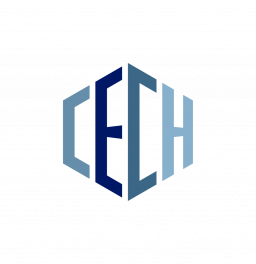CECH’s Work Programme for 2025-2029 establishes its General Project: Classical and Humanistic Studies – Empowering People. Valuing Cultures and Heritage, which enlists a body of integrated researchers for the realisation of its objectives. This project aims to adopt innovative strategies for knowledge transfer.
Working on empowering people means both (i) treating citizens as co-creation partners (granting them easier access to knowledge and culture, allowing them to value cultures and heritage), and (ii) adopting best practices to cultivate a balanced and creative work environment for the researchers.
Within this person-centric framework, CECH remains committed to implementing practices of knowledge sharing and co-creation, valuing well-being, inclusion, diversity, and care towards the most vulnerable.
The Unit also prioritises stability for researchers, promoting work-life balance, gender equality, and intergenerational collaboration.
The General Project structures its R&D activities with two Thematic Pillars:
• Monumenta Graeca & Latina
Entails the deepened study of authors and works (written, archaeological, and artistic) of the Graeco-Latin cultural universes, created during Classical Antiquity, the Middle Ages, and during the span of Renaissance Humanism, seeking to broaden the diffusion of this knowledge.
This is an essential pillar to safeguard the material and immaterial heritage of Humanity, providing access to goods that are at risk of being forgotten or perceived as exclusive to an elite.
Classical and Humanistic Cultures and Heritages
Focuses on the reception of the Greek and Latin classical matrix, as well as the importance of the humanities for the formation of cultural identities, with an emphasis on how they help create a sense of belonging in societies marked by identity crises.
Developing a broad reflection surrounding the human experience and resorting to comparative methods, this pillar also aims to provide innovative and disruptive answers to modern societal challenges.
Research structure dynamics
All researchers contribute to the General Project, within which some of the Centre’s Secondary Projects are inserted. These correspond to Specific Intervention Areas of the Unit’s Work Programme, working as a whole for the fulfilment of the thematic pillars of the Unit’s General Project.
> Secondary Projects for 2025-2029 <
Researchers
Scientific Coordinator of the Centre for Classical and Humanistic Studies
Contact: cech.carmensoares@gmail.com
The General Project is formed by all the integrated and collaborating researchers of the Centre for Classical and Humanistic Studies.
Transfer & Applied Knowledge
Research Question:
What is the perception of the municipalities covered by the Regional Directorate for Culture of the Centre (DRCC) regarding the Intangible Cultural Heritage (ICH) practiced in their territories?
This is an exploratory study aimed at the following objectives: characterizing the manifestations of ICH identified by the responsible authorities of each municipality; raising awareness among municipalities and populations about the importance of systematic inventorying of their ICH, particularly urgent in the case of manifestations at risk of disappearing.
Scientific Coordination:
Centre for Classical and Humanistic Studies of the University of Coimbra
Principal Coordinator:
Carmen Soares
Deputy Coordinator:
Paula Barata Dias
Scientific Coordination Assistance:
Carlos Baptista
Patrícia de Gomensoro
Research and Text Writing:
Ana Maria Proserpio; Carlos Baptista; Cinthia Otto Marques; Josefina Salvado; Maria José Araújo & Patrícia Gomensoro




